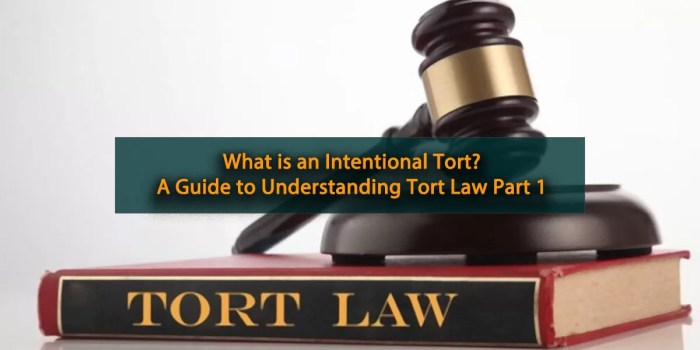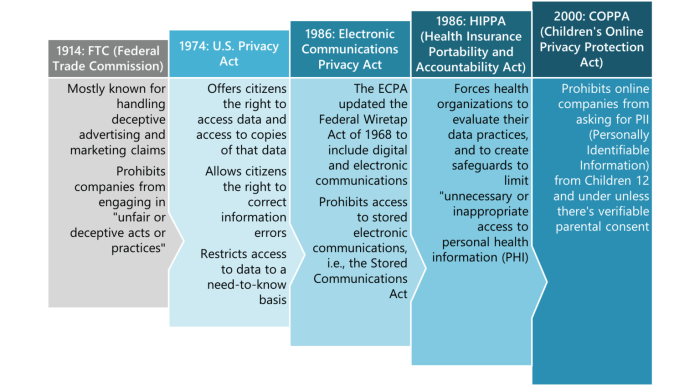Embark on a journey through the intricate world of Franchise Law Essentials, where the foundation of business success is laid upon a solid legal framework. This captivating introduction sets the stage for a deep dive into the key components and vital importance of franchise law in the realm of business operations.
As we unravel the complexities and nuances of franchise law, we will explore the fundamental aspects that govern franchise agreements, intellectual property rights, relationship laws, and international considerations, providing a comprehensive understanding of this essential legal domain.
Overview of Franchise Law
Franchise law is a specialized area of law that governs the relationship between the franchisor (the company that grants the franchise) and the franchisee (the individual or entity that operates the franchised business). It encompasses a set of legal rules and regulations that both parties must adhere to in order to maintain a successful and lawful business operation.
Key Components of Franchise Law
Franchise law typically includes provisions related to the disclosure of information, franchise agreements, intellectual property rights, territory rights, training and support, advertising, quality control, and termination procedures. These components are crucial in ensuring a fair and equitable relationship between the franchisor and franchisee.
Importance of Franchise Law in Business Operations
Franchise law plays a vital role in safeguarding the interests of both parties involved in a franchise agreement. It provides a framework for establishing clear expectations, rights, and responsibilities, thus reducing the likelihood of disputes and conflicts. By complying with franchise law requirements, businesses can operate smoothly and maintain consistency in their brand image and operations across multiple locations.
Franchise Disclosure Document (FDD)

Franchise Disclosure Document (FDD) is a crucial component of franchise agreements, serving the purpose of providing potential franchisees with essential information to make informed decisions before entering into a franchise relationship.
Purpose of an FDD
The main purpose of an FDD is to disclose important details about the franchisor-franchisee relationship, including the franchisor’s background, financial health, legal obligations, and other relevant information. This transparency helps potential franchisees assess the risks and benefits associated with the franchise opportunity.
Information Included in an FDD
- Franchisor’s background and experience
- Initial and ongoing costs of the franchise
- Franchisee obligations and restrictions
- Financial statements of the franchisor
- Litigation history of the franchisor
FDD Requirements in Different Jurisdictions
In different jurisdictions, the requirements for FDDs may vary in terms of content and format. For example, some jurisdictions may mandate specific disclosures related to earnings claims, territory restrictions, or renewal terms. It is essential for franchisors to comply with the FDD requirements of each jurisdiction where they offer franchises to ensure legal compliance and protection for both parties involved in the franchise agreement.
Franchise Agreement
Franchise agreements are the legal documents that govern the relationship between a franchisor and a franchisee. These agreements Artikel the rights and responsibilities of both parties and are crucial for the successful operation of a franchise business.
Essential Elements of a Franchise Agreement
- Franchise Fee: The initial fee paid by the franchisee to the franchisor for the right to operate a franchise.
- Royalty Fees: Ongoing payments made by the franchisee to the franchisor based on a percentage of sales.
- Term of the Agreement: The duration of the agreement, including any renewal options.
- Territorial Rights: The geographic area in which the franchisee is allowed to operate.
- Training and Support: Details on the training and support provided by the franchisor to the franchisee.
Common Clauses in Franchise Agreements
- Non-Compete Clause: Prohibits the franchisee from operating a similar business within a certain geographic area and timeframe.
- Renewal Terms: Artikels the conditions under which the franchise agreement can be renewed.
- Termination Clause: Specifies the circumstances under which either party can terminate the agreement.
- Intellectual Property Rights: Details the use of trademarks, logos, and other intellectual property of the franchisor.
Legal Implications of Breaching a Franchise Agreement
- Financial Penalties: Breaching a franchise agreement can lead to financial penalties, including the loss of initial investment or royalty payments.
- Litigation: The franchisor may take legal action against the franchisee for breaching the agreement, leading to costly legal proceedings.
- Termination: Breaching a franchise agreement can result in the termination of the franchise, causing the franchisee to lose the right to operate the business.
Franchise Relationship Laws
Franchise relationship laws govern the interactions between franchisors and franchisees, setting guidelines to protect both parties and ensure a fair and balanced partnership.
Protection of Both Parties
Franchise relationship laws are designed to safeguard the interests of both franchisors and franchisees. These laws establish clear expectations, rights, and responsibilities for each party, helping to prevent misunderstandings and disputes. By outlining the terms of the franchise agreement and the obligations of each party, franchise relationship laws create a framework for a successful and harmonious business relationship.
Common Disputes
- Non-payment of fees: Disputes may arise if a franchisee fails to meet financial obligations, such as royalty payments or advertising fees.
- Quality control issues: Franchisors may take action if a franchisee does not maintain the agreed-upon standards of products or services.
- Termination of the agreement: Franchise relationship laws provide guidelines for the termination of a franchise agreement, including reasons for termination and the process to be followed.
- Intellectual property disputes: Franchisees must adhere to the franchisor’s trademarks and intellectual property guidelines, and disputes may arise if there is a violation of these rights.
Franchise Registration and Compliance
Franchise registration and compliance are crucial aspects of franchise law that ensure transparency and legal adherence within the franchising industry. Understanding the process of franchise registration in different countries, identifying regulatory bodies responsible for overseeing franchise compliance, and discussing the penalties for non-compliance are essential for both franchisors and franchisees.
Franchise Registration Process
Franchise registration processes vary from country to country, with some requiring franchisors to register their franchise offerings with specific government agencies or departments. For example, in the United States, the Federal Trade Commission (FTC) oversees franchise registration through the Franchise Disclosure Document (FDD) filing process.
On the other hand, countries like Australia have specific state-based regulations governing franchise registration.
Regulatory Bodies for Franchise Compliance
Regulatory bodies responsible for overseeing franchise compliance include government agencies such as the FTC in the United States, the Australian Competition and Consumer Commission (ACCC) in Australia, and the British Franchise Association (BFA) in the United Kingdom. These bodies ensure that franchisors adhere to franchise laws and regulations to protect the interests of franchisees and maintain the integrity of the franchising industry.
Penalties for Non-Compliance
Non-compliance with franchise laws can result in severe penalties for franchisors, including fines, legal action, and even the termination of franchise agreements. Franchise laws are designed to protect franchisees from fraudulent or deceptive practices and maintain fairness and transparency in the franchising relationship.
It is essential for franchisors to comply with franchise laws to avoid legal consequences and uphold the trust and credibility of their franchise systems.
Intellectual Property Rights in Franchising
Intellectual property rights play a crucial role in franchise agreements, as they protect the unique concepts, branding, and ideas that make a franchise distinctive. These rights give franchisors the legal authority to maintain control over their brand identity and business operations.
Types of Intellectual Property in Franchising
Franchisors commonly protect the following types of intellectual property in franchising:
- Trademarks: These protect brand names, logos, and slogans that distinguish the franchise from competitors.
- Copyrights: These protect original creative works such as training materials, marketing materials, and software.
- Trade Secrets: These protect confidential information like recipes, formulas, and business processes that give the franchise a competitive edge.
- Patents: These protect inventions or processes that are unique to the franchise system.
Enforcement of Intellectual Property Rights
Franchisors can enforce their intellectual property rights through various means, including:
- Filing lawsuits against individuals or entities that infringe on their trademarks or copyrights.
- Issuing cease and desist letters to parties using their intellectual property without authorization.
- Implementing monitoring systems to detect unauthorized use of their intellectual property online and offline.
- Including clauses in franchise agreements that Artikel the franchisor’s rights and the consequences of intellectual property infringement.
Franchise Termination and Renewal
Franchise termination and renewal are crucial aspects of the franchise relationship that both franchisors and franchisees need to understand. Terminating or renewing a franchise agreement can have significant implications for both parties involved.
Termination of Franchise Agreement
Terminating a franchise agreement is a serious decision that can have legal consequences. The procedures for terminating a franchise agreement are typically Artikeld in the franchise agreement itself. Some common grounds for termination by either party include:
- Violation of the terms of the franchise agreement
- Failure to pay fees or royalties
- Failure to maintain standards set by the franchisor
- Bankruptcy or insolvency
- Violation of laws or regulations
It is important for both parties to follow the procedures Artikeld in the franchise agreement when terminating the agreement to avoid potential legal disputes.
Renewal of Franchise Agreement
Renewing a franchise agreement involves extending the terms of the existing agreement for a specified period. The process of renewing a franchise agreement typically requires both parties to agree on the terms of the renewal. Franchise agreements usually include provisions for renewal, such as the conditions under which the agreement can be renewed and the procedures for initiating the renewal process.Franchisees who wish to renew their agreement must usually meet certain conditions set by the franchisor, such as maintaining operational standards and meeting financial obligations.
Franchisors may also have the right to refuse to renew an agreement if the franchisee has not met the necessary requirements.Overall, understanding the procedures for terminating and renewing a franchise agreement is essential for both franchisors and franchisees to ensure a successful and mutually beneficial franchise relationship.
Franchise Expansion and Development
When it comes to expanding a franchise network, strategic planning and legal considerations play a crucial role in ensuring success. Franchise expansion involves opening new locations, reaching a wider customer base, and increasing brand visibility. However, it also comes with risks and challenges that need to be carefully navigated.
Strategies for Franchise Expansion
- Market Research: Conduct thorough market research to identify potential locations with high demand for your product or service.
- Master Franchise Agreements: Consider offering master franchise agreements to experienced franchisees who can help expand your brand in new territories.
- Area Development Agreements: Enter into area development agreements with franchisees to open multiple locations within a specified timeframe.
- Joint Ventures: Explore partnerships with local businesses or investors to accelerate the pace of expansion.
Legal Considerations for Developing New Franchise Locations
- Compliance: Ensure that all new franchise locations comply with federal, state, and local laws and regulations.
- Franchise Agreement: Draft comprehensive franchise agreements that clearly Artikel the rights and responsibilities of both parties.
- Territorial Rights: Define territorial rights for each franchise location to prevent cannibalization and conflicts among franchisees.
Risks and Benefits of Franchise Expansion
- Risks: Franchise expansion may lead to overextension, dilution of brand value, and challenges in maintaining quality control across multiple locations.
- Benefits: Expansion can result in increased revenue, brand recognition, and market share, leading to overall growth and profitability.
- Operational Challenges: Managing a larger franchise network requires effective communication, training programs, and operational support to ensure consistency and success.
Franchisee Rights and Obligations
Franchisees play a crucial role in the success of a franchise business. They are granted specific rights under franchise laws, but they also have obligations they must fulfill to maintain a healthy franchise relationship. Let’s delve into the rights and obligations of franchisees and how they are balanced in franchise agreements.
Franchisee Rights
Franchisees have the following rights granted to them under franchise laws:
- Right to use the franchisor’s trademarks and business model
- Right to receive training and ongoing support from the franchisor
- Right to benefit from the franchisor’s marketing and advertising efforts
- Right to operate the franchise in a defined territory
Franchisee Obligations
Franchisees must fulfill the following obligations to maintain their franchise agreement:
- Payment of initial franchise fees and ongoing royalties
- Compliance with the franchise system and operating standards set by the franchisor
- Participation in training programs and implementing the franchisor’s business strategies
- Adherence to the terms and conditions Artikeld in the franchise agreement
Balancing Rights and Obligations
Franchise agreements are designed to balance the rights and obligations of both parties, ensuring a mutually beneficial relationship. By clearly outlining the rights granted to franchisees and the obligations they must fulfill, franchise agreements establish a framework for a successful partnership.
Franchisors provide support and resources to help franchisees thrive, while franchisees contribute to the growth and success of the overall franchise system through their commitment and adherence to the agreed-upon terms.
International Franchise Laws
Operating a franchise internationally brings a whole new set of challenges and considerations. Each country has its own unique franchise laws and regulations that must be navigated to ensure compliance and success. In this section, we will compare franchise laws across different countries, discuss the challenges of operating a franchise internationally, and analyze the impact of cultural differences on international franchise agreements.
Comparing Franchise Laws Across Different Countries
When expanding a franchise internationally, it is crucial to understand the legal framework in each country. Franchise laws can vary significantly, affecting everything from disclosure requirements to termination procedures. For example, some countries may have strict regulations on franchise agreements, while others may have more lenient policies.
It is essential for franchisors to conduct thorough research and seek legal counsel to ensure compliance with each country’s specific laws.
Challenges of Operating a Franchise Internationally
Operating a franchise internationally comes with a unique set of challenges, including language barriers, cultural differences, and varying consumer preferences. Franchisors must adapt their business model to suit the local market while also maintaining brand consistency. Additionally, navigating different legal systems and regulatory environments can be complex and time-consuming.
Building strong relationships with local partners and investing in thorough training programs can help overcome these challenges.
Impact of Cultural Differences on International Franchise Agreements
Cultural differences can have a significant impact on international franchise agreements. From communication styles to business practices, understanding and respecting the cultural norms of each country is crucial for successful franchise operations. For example, some cultures may prioritize hierarchy and formality, while others may value flexibility and innovation.
Franchisors must be willing to adapt their strategies and operations to align with the cultural expectations of their international markets.
Ending Remarks
In conclusion, Franchise Law Essentials serve as the cornerstone for establishing and maintaining successful franchising ventures. By grasping the intricacies of franchise law, businesses can navigate legal challenges, protect their interests, and foster fruitful relationships within the franchising industry. Dive into the world of franchise law with confidence, armed with the knowledge to thrive in this competitive landscape.

